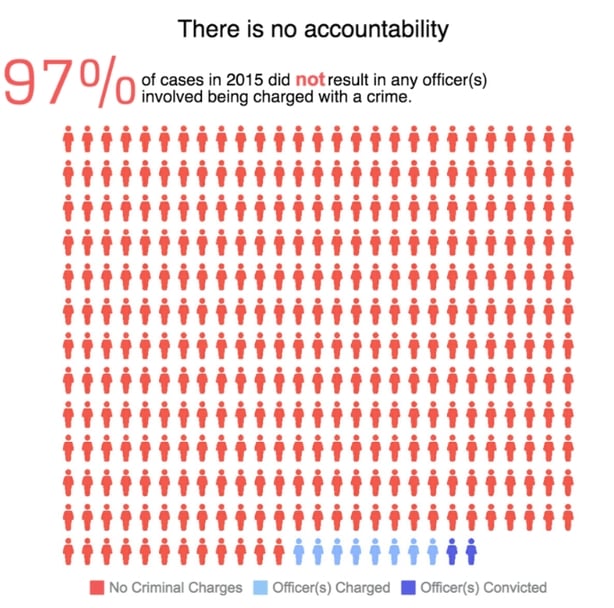The sniper attack in Dallas occurred against the backdrop of a wave of anti-police protests across the US following the shooting of two black men by police officers in Louisiana and Minnesota this week.
The killing of Philando Castile, 32, who was shot by a police officer after a traffic stop on Wednesday evening, prompted Minnesota Governor Mark Dayton to order a state investigation.
"Would this have happened if the driver and the passengers were white? I don't think it would have," Mr Dayton told reporters yesterday.
"So I'm forced to confront that this kind of racism exists, and it's incumbent upon all of us to vow and ensure that it doesn't happen and doesn't continue to happen."
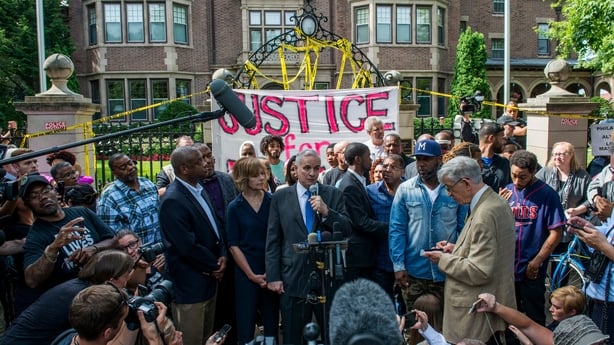
Mr Castile's death occurred within a day of the shooting of 37-year-old Alton Sterling in Baton Rouge, Louisiana.
Mr Sterling was killed during an altercation with two white police officers.
Graphic video of that incident triggered protests and an outcry on social media.
Mr Dayton called for the US Department of Justice to open its own investigation, but the department said yesterday it would assist the state investigation as necessary.
The US Justice Department has opened an investigation into the Baton Rouge shooting.
Mr Castile's girlfriend, Diamond Reynolds, videotaped the minutes immediately following his shooting and posted it on Facebook Live.
Mr Castile, who was driving, was shot with Ms Reynolds and her four-year-old daughter in the car.
The graphic video showed blood oozing through Mr Castile's shirt as he lost consciousness.
President Barack Obama said the killings were tragedies.
"All of us as Americans should be troubled by these shootings, because these are not isolated incidents. They're symptomatic of a broader set of racial disparities that exist in our criminal justice system," he said in remarks after arriving in Poland.
The use of force by police against African-Americans in cities from Ferguson, Missouri, to Baltimore and New York has sparked periodic and sometimes violent protests in the past two years, and has spawned a movement called Black Lives Matter.
Anger has intensified when the officers involved in such incidents have been acquitted or not charged at all.
Ms Reynolds' video showed a police officer outside the car pointing a gun.
She described what was going on, sometimes speaking calmly to the police officer, sometimes with her voice rising as she feared Mr Castile was dying.
Ms Reynolds said Mr Castile was shot after police pulled their car over, citing a broken rear light. "Nothing within his body language said 'Kill me, I want to be dead,'" she said yesterday.
Demonstrations over the deaths of Mr Castile, Mr Sterling and other black men killed by police were planned in St Paul, Chicago and Dallas.
In New York City, several hundred protesters blocked traffic in Times Square, chanting "Hands up, don't shoot," and other slogans.
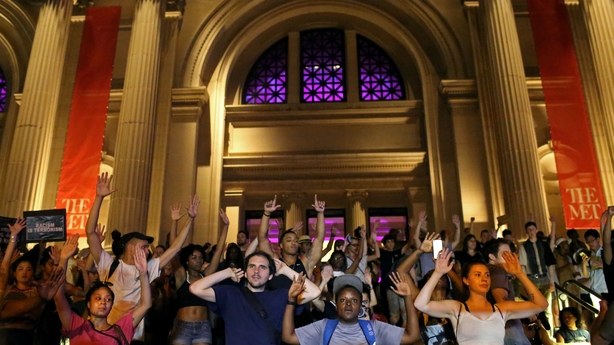
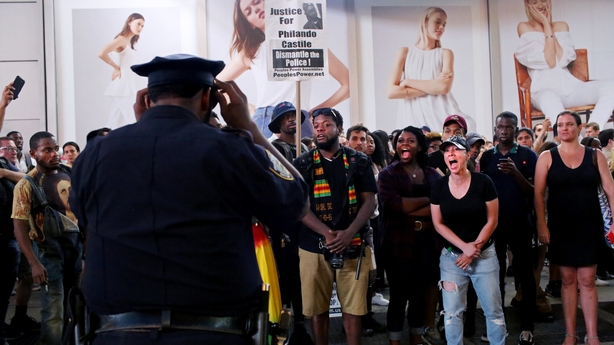
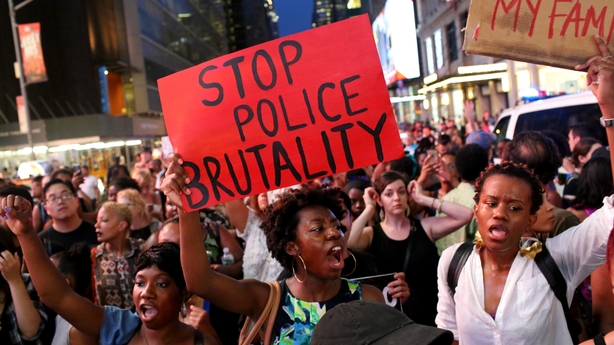
Other rallies, including one in Atlanta, were planned for today.
Weekend protests as far away as London were being discussed on Twitter.
Minnesota officials declined in a news conference to identify the officer who shot Mr Castile, saying they were still interviewing him. His identity would be released after the interview was completed, they said.
The Washington Post said Castile was at least the 506th person and 123rd black American shot and killed by police so far in 2016, according to a database it has set up to track such deaths.
About 10% of those black Americans were unarmed, while about 61% had guns, the paper said.
The Mapping Police Violence website claims that 97% of cases involving police last year did not result in criminal charges for the officer.
